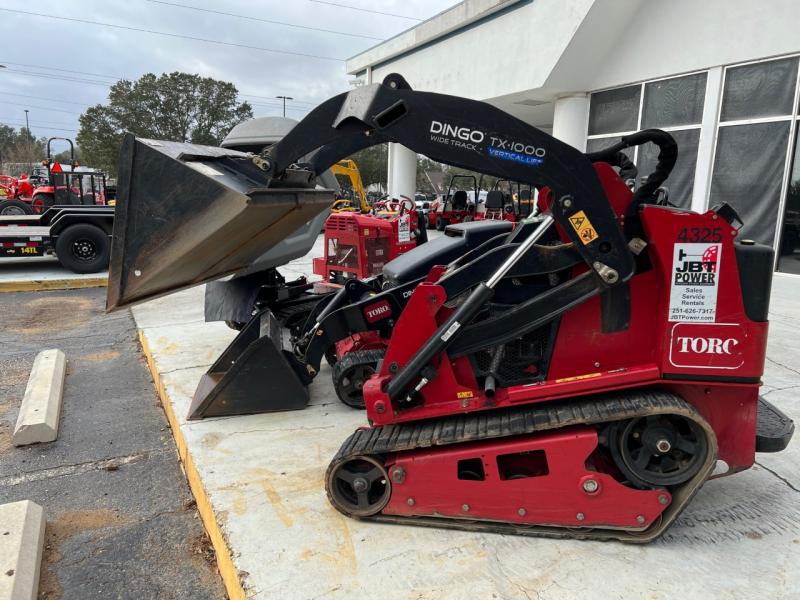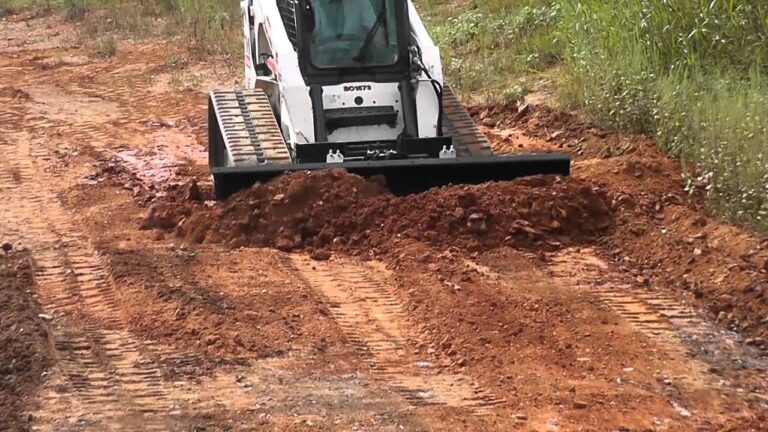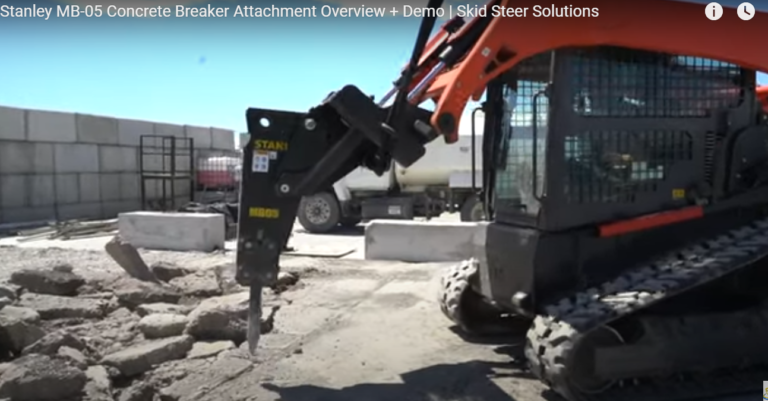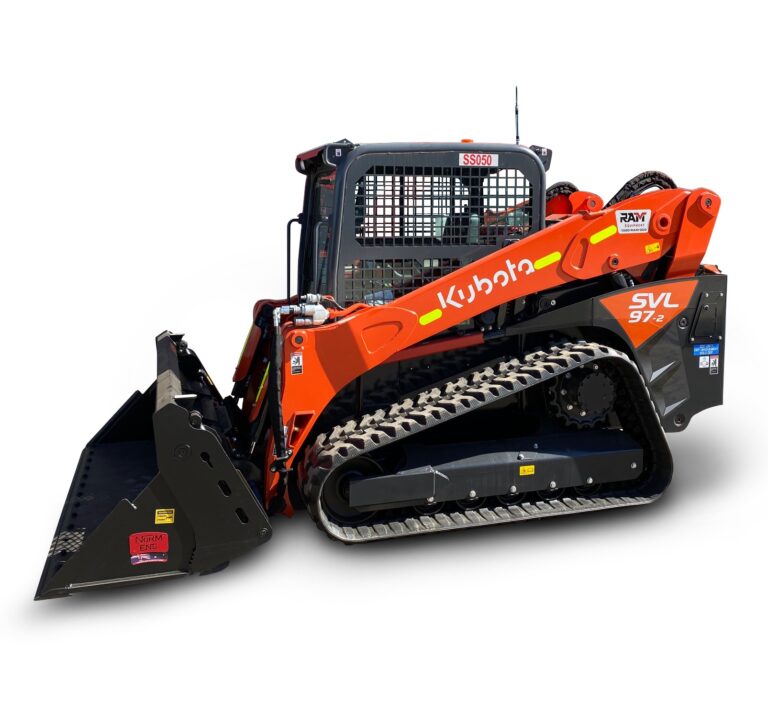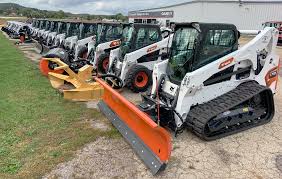Dingo Skid Steer: Unleash the Power of Efficiency
Dingo Skid Steers are versatile compact machines designed for various landscaping and construction tasks. They excel in maneuverability, making them ideal for tight spaces.
Dingo Skid Steers are essential tools in the landscaping and construction industries. Known for their compact size and exceptional power, these machines can tackle a wide range of jobs efficiently. From digging and grading to transporting materials, Dingo Skid Steers offer unmatched versatility.
Their unique design allows operators to navigate confined areas with ease, making them perfect for residential projects and commercial sites alike. Equipped with various attachments, these skid steers can handle everything from soil cultivation to heavy lifting. Choosing a Dingo Skid Steer can significantly enhance productivity and reduce labor costs on any project. Experience the advantages of this powerful machine for your next job.

Credit: www.toro.com
Introduction To Dingo Skid Steers
Dingo Skid Steers are compact machines built for tough jobs. They offer a unique blend of power and agility. Businesses across various industries rely on them for efficiency. Let’s explore their key features.
Compact Size
Dingo Skid Steers are known for their small footprint. This makes them ideal for tight spaces. Their dimensions allow easy maneuvering in crowded areas.
- Width: Ranges from 30 to 36 inches
- Height: Around 48 to 54 inches
- Weight: Typically between 1,000 and 3,000 pounds
Despite their size, they can lift heavy loads. This combination of compactness and strength is remarkable.
Mighty Performance
Dingo Skid Steers deliver impressive performance. They feature powerful engines that provide high torque. This ensures efficient operation in various conditions.
| Engine Type | Power Output | Hydraulic Capacity |
|---|---|---|
| Gas/Diesel | Up to 25 HP | Up to 2,000 PSI |
These machines can handle tough tasks with ease. Users often praise their reliability and durability.
Versatility In Various Industries
Dingo Skid Steers are versatile tools. They serve multiple industries, including:
- Construction: Digging and grading.
- Landscaping: Soil moving and planting.
- Agriculture: Material handling and farm work.
- Snow Removal: Clearing driveways and paths.
With numerous attachments, they adapt easily to tasks. This flexibility makes them a favorite among professionals.
Dingo Skid Steer Models
Dingo Skid Steers are versatile machines. They are ideal for various tasks. Different models offer unique features. Understanding these models helps you choose wisely.
Comparing Different Models
Several Dingo Skid Steer models exist. Each model serves different needs. Below is a comparison table:
| Model | Engine Power | Weight | Lift Capacity |
|---|---|---|---|
| Dingo 320 | 20 HP | 1,000 lbs | 500 lbs |
| Dingo 500 | 25 HP | 1,200 lbs | 700 lbs |
| Dingo 1000 | 30 HP | 1,500 lbs | 1,000 lbs |
Each model offers distinct advantages:
- Dingo 320: Lightweight and easy to maneuver.
- Dingo 500: Balanced power and weight.
- Dingo 1000: Best for heavy-duty tasks.
Selecting The Right Model For Your Needs
Choosing the right Dingo Skid Steer is crucial. Consider these factors:
- Task Type: What will you use it for?
- Weight Capacity: How much weight will you lift?
- Engine Power: Do you need more power?
Here are some tips for selection:
- For small gardens, the Dingo 320 works well.
- For landscaping, the Dingo 500 is ideal.
- For construction, choose the Dingo 1000.
Evaluate your needs. Pick the model that matches your requirements.
Performance Specifications
The performance specifications of the Dingo Skid Steer highlight its power and efficiency. This machine excels in various tasks, making it a favorite among professionals.
Engine Capabilities
The engine of the Dingo Skid Steer is its heart. It offers strong performance and reliability. Here are the key specifications:
| Specification | Details |
|---|---|
| Engine Type | 4-Stroke Diesel |
| Power Output | 25 HP |
| Torque | 50 lb-ft |
| Displacement | 1,500 cc |
The engine provides impressive torque. It ensures quick acceleration and smooth operation. Operators can handle heavy loads easily. This machine is perfect for construction and landscaping tasks.
Hydraulic System Efficiency
The hydraulic system of the Dingo Skid Steer enhances its overall performance. It is designed for efficiency and strength.
- Hydraulic Flow Rate: 10 GPM
- Maximum Pressure: 2,500 PSI
- Lift Capacity: 800 lbs
The hydraulic system offers several advantages:
- Fast cycle times for increased productivity.
- Precise control for delicate tasks.
- Ability to operate multiple attachments effortlessly.
The combination of a powerful engine and an efficient hydraulic system makes the Dingo Skid Steer a reliable choice. It meets the needs of various industries effectively.
Attachments And Accessories
Attachments and accessories enhance the performance of your Dingo Skid Steer. They make tasks easier and faster. Choosing the right tools can boost productivity and efficiency.
Enhancing Functionality
Using the right attachments can transform your Dingo Skid Steer. Each attachment serves a unique purpose. Here are some popular options:
- Bucket: Ideal for moving dirt or gravel.
- Forks: Great for lifting pallets and heavy materials.
- Auger: Perfect for digging holes quickly.
- Grapple: Excellent for handling brush and debris.
- Snow Blade: Efficient for snow removal.
These attachments increase the versatility of your machine. They allow you to tackle various tasks with ease.
Attachment Compatibility And Integration
Compatibility is crucial for the best performance. Dingo Skid Steers support numerous attachments. Check compatibility before purchasing. Here’s a quick overview:
| Attachment Type | Compatibility |
|---|---|
| Standard Bucket | Compatible with all Dingo models |
| Heavy-Duty Forks | Available for select models |
| Auger Drive | Compatible with most models |
| Grapple Bucket | Specific models only |
| Snow Blade | Universal fit for all models |
Integration with the Dingo Skid Steer is simple. Most attachments connect quickly without tools. This saves time and effort. Ensure you choose high-quality accessories. Quality enhances durability and performance.
Operating A Dingo Skid Steer
Operating a Dingo Skid Steer can be rewarding and efficient. This compact machine handles tough tasks easily. Proper training and safety measures ensure smooth operation.
Safety First: Operating Protocols
Safety is crucial while operating a Dingo Skid Steer. Follow these essential protocols:
- Wear appropriate personal protective equipment (PPE).
- Ensure the work area is clear of obstacles.
- Always check for overhead power lines.
- Keep bystanders at a safe distance.
- Use a spotter for visibility in tight spaces.
Before starting, inspect the machine:
- Check fluid levels.
- Inspect tires and tracks.
- Test all safety features.
Training For Optimal Use
Training is vital for effective operation. Consider these training options:
| Training Type | Description |
|---|---|
| Hands-On Training | Practice with an experienced operator. |
| Online Courses | Learn the basics and safety protocols. |
| Manufacturer Workshops | Get insights from Dingo experts. |
Each training method enhances skills and confidence. Understanding the controls is key. Focus on:
- Throttle control for speed.
- Steering for direction.
- Loader control for lifting.
Practice makes perfect. Spend time operating under supervision. This builds your skills effectively.
Maintenance And Upkeep
Proper maintenance ensures your Dingo Skid Steer runs efficiently. Regular upkeep prolongs its lifespan. Keeping your machine in top shape saves you money on repairs. Follow the tips below for effective maintenance.
Routine Maintenance Checklist
Use this checklist to keep your Dingo Skid Steer in optimal condition:
- Check engine oil level.
- Inspect hydraulic fluid levels.
- Clean air filter regularly.
- Inspect tires for wear and pressure.
- Check battery connections and fluid levels.
- Grease all moving parts weekly.
- Inspect belts and hoses for damage.
- Test safety features monthly.
Troubleshooting Common Issues
Here are some common problems and solutions:
| Issue | Possible Cause | Solution |
|---|---|---|
| Engine won’t start | Dead battery | Charge or replace battery. |
| Weak hydraulic lift | Low hydraulic fluid | Fill hydraulic fluid to proper level. |
| Excessive noise | Worn bearings | Inspect and replace bearings. |
| Poor traction | Worn tires | Replace or repair tires. |
Identify the problem quickly. Follow these steps to troubleshoot effectively. Regular checks help prevent major issues.
Cost-benefit Analysis
The cost-benefit analysis of the Dingo Skid Steer highlights its value. It examines initial costs versus long-term savings. This analysis helps buyers make informed decisions.
Initial Investment Vs. Long-term Savings
The Dingo Skid Steer requires a significant initial investment. However, its long-term savings can outweigh these costs.
Consider the following factors:
- Fuel Efficiency: Dingo’s engines use less fuel.
- Maintenance Costs: Fewer breakdowns lead to lower repair bills.
- Versatility: It can handle multiple tasks, reducing equipment needs.
Here’s a simple comparison:
| Item | Initial Cost | Annual Savings |
|---|---|---|
| Dingo Skid Steer | $25,000 | $5,000 |
| Traditional Equipment | $15,000 | $2,000 |
In this case, the Dingo may cost more upfront. Yet, annual savings can accumulate quickly.
Comparing To Traditional Equipment
Traditional equipment often has higher operating costs. Here are some key differences:
- Fuel Consumption: Dingo is more fuel-efficient.
- Maintenance: Dingo requires less frequent servicing.
- Durability: Built to last longer than many traditional options.
Consider these points:
- Lower fuel costs save money over time.
- Reduced maintenance means less downtime.
- Greater versatility can replace multiple machines.
The Dingo Skid Steer offers a better long-term investment. It balances the initial cost with substantial savings.

Credit: www.eaglepowerandequipment.com
Real-world Applications
The Dingo Skid Steer is a powerful tool in various industries. Its versatility allows for many applications. From landscaping to construction, this machine excels everywhere. Let’s explore some real-world examples.
Case Studies: Efficiency In Action
Here are some case studies showcasing the Dingo Skid Steer’s efficiency:
| Industry | Application | Result |
|---|---|---|
| Landscaping | Site Preparation | Reduced labor time by 30% |
| Construction | Material Transport | Increased productivity by 25% |
| Agriculture | Soil Tilling | Improved soil quality |
These examples show how the Dingo Skid Steer boosts efficiency. Operators save time and effort while achieving great results.
Testimonials From Diverse Fields
Here’s what users from different industries say about the Dingo Skid Steer:
- John D. – Landscaper: “The Dingo saves me hours on each job.”
- Sarah K. – Contractor: “It handles heavy loads with ease.”
- Mike R. – Farmer: “Perfect for my farm’s needs.”
Users appreciate its reliability and effectiveness. The Dingo Skid Steer meets various demands across sectors.
Future Of Compact Construction Equipment
The future of compact construction equipment is bright and exciting. The industry is evolving rapidly. Innovations are reshaping how we work. Dingo Skid Steer leads this change. These machines enhance productivity and efficiency.
Innovations On The Horizon
New technologies are emerging in compact construction equipment. Here are some innovations to watch:
- Automation: Machines will operate with less human input.
- Smart Technology: Sensors will monitor performance and efficiency.
- Telematics: Real-time data will track usage and maintenance needs.
- Advanced Attachments: Versatile tools will expand machine capabilities.
Dingo Skid Steer is at the forefront of these changes. New models will feature advanced automation. This will improve job site safety and productivity.
Sustainability And Eco-friendly Design
Environmental concerns shape the future of construction equipment. Manufacturers focus on eco-friendly designs. Dingo Skid Steer is committed to sustainability.
| Feature | Benefit |
|---|---|
| Electric Models | Reduce emissions and noise pollution. |
| Fuel Efficiency | Lower operating costs and environmental impact. |
| Recyclable Materials | Minimize waste and resource consumption. |
These sustainable practices attract environmentally conscious buyers. Dingo Skid Steer embraces these changes. The future promises cleaner and greener construction sites.
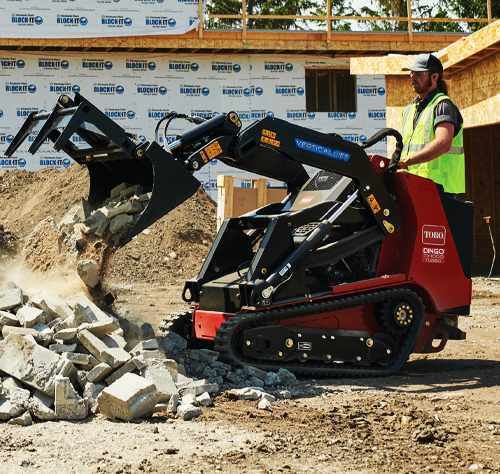
Credit: www.toro.com
Frequently Asked Questions
What Is A Dingo Skid Steer?
A Dingo skid steer is a compact, versatile piece of machinery used in construction and landscaping. It features a small turning radius and is designed for various tasks. With attachments like buckets and augers, it can handle digging, lifting, and grading efficiently.
It’s ideal for tight spaces.
How Much Weight Can A Dingo Skid Steer Lift?
A Dingo skid steer typically has a lifting capacity ranging from 1,000 to 2,500 pounds. The exact weight depends on the model and attachments used. This capacity makes it suitable for transporting heavy materials. Always check the manufacturer’s specifications for precise limits before use.
What Attachments Are Available For A Dingo Skid Steer?
Dingo skid steers can accommodate various attachments, including buckets, forks, and trenchers. Other options include augers, snow plows, and grapples. These attachments enhance the machine’s versatility. They allow it to perform multiple tasks, making it a valuable tool for any job site.
Are Dingo Skid Steers Easy To Operate?
Yes, Dingo skid steers are designed for ease of use. Their intuitive controls allow operators to quickly learn how to handle them. With practice, most users can operate them efficiently within a short time. This ease of operation makes them popular among both professionals and DIY enthusiasts.
Conclusion
The Dingo Skid Steer is a versatile machine that enhances productivity on any job site. Its compact design allows for easy maneuverability in tight spaces. With various attachments, it adapts to diverse tasks. Investing in a Dingo ensures efficiency and reliability, making it an essential tool for contractors and landscapers alike.

